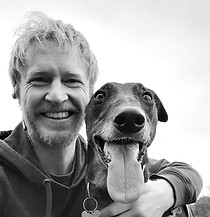The Care Experience
Study.

About
The Care Experience Study is exploring how experiences within children’s social care in the UK influence mental health later in life – both positively and negatively. To do this, the study set out to identify which aspects of care experience have the potential to shape mental health outcomes. This involved speaking to people who have been in care and listening to what they said shaped their lives during that time. Insights from these conversations are now being used to develop a new questionnaire – The Care Experience Questionnaire (CEPQ) - designed to explore how strongly these particular experiences influence later mental health. The overall aim is to generate actionable insights that can drive meaningful change to the care system and improve the life chances of children and young people who depend on it to keep them safe and protect their wellbeing.
Meet The Team
"Every child needs a strong, mutual, emotional connection to at least one adult who is committed to their well-being and development" - Bronfenbrenner (1994)
RESEACH
papers
In the studio...
This section brings together a range of video content created to share the story behind the Care Experience Study. It includes a short video introducing lead researcher Sally Peplow and the motivation behind the project, alongside a podcast-style recording that explores key findings from the study’s initial qualitative phase, highlighting how participants’ care experiences may shape later mental health. Also featured is a Christmas single video, produced in collaboration with the charity Your Life Your Story, care-experienced author Rachel W, and singer-songwriter and musician Casper Mason, which raises awareness of what it feels like to be care experienced during the festive season. The final video offers a look back at the Faculty of Health & Life Sciences poster competition at the University of Liverpool, where the study’s scientific poster was awarded joint first place for the Institute of Population Health.




Get in touch
Department of Psychology, University of Liverpool, Eleanor Rathbone Building, Liverpool, L69 7ZA S.Peplow@liverpool.ac.uk













